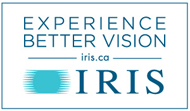Have you had your eyes checked lately?
 Regular eye examinations are key to long-term eye health. Find out what to expect — plus important tips to protect your eye health as you age.
Regular eye examinations are key to long-term eye health. Find out what to expect — plus important tips to protect your eye health as you age.
Throughout your life, regular eye health and vision examinations with an optometrist are essential. The first 6 years are the most crucial to long-term eye health and vision. All children should have eye examinations at 6 months then 3 and 6 years of age. Many vision issues are correctable if detected and treated early. Success in academics and athletics as well as social development are all impacted by how well the visual system performs. The optometrist will advise if your child requires more frequent examinations, but a yearly visit to the optometrist is needed.
All adults should have an annual vision and eye health examination. Vision changes throughout your life should be monitored and correction prescribed and updated as needed. Early detection of many health issues is possible during the course of a complete eye health examination with a Doctor of Optometry.
Changes to your vision can be gradual and patients are often surprised to realize that they can improve their vision with an updated prescription for glasses or contact lenses. Quality of vision impacts many aspects of life, including safety while driving and effectiveness in the work place. People may begin to slow down or eliminate activities unnecessarily, as reduced vision can impact confidence, comfort and mobility even in young adults.
What to expect at an eye examination
It’s important to talk with your optometrist about lifestyle and visual demands at work and play, family eye and health history, and the history of your eyes. A parent should always attend the eye examination with their child to provide background information and discuss any specific concerns. The examination should involve assessment of eye muscle coordination, a detailed eye health examination and updated glasses and contact lens prescription. The doctor should be testing for sight-threatening diseases (glaucoma, cataracts, and macular degeneration) and looking for signs of diseases of the body (diabetes, high blood pressure, cancers, and high cholesterol). Visual field testing and retinal digital imaging are effective in early detection of eye disease as well as creating a baseline of information for future monitoring of your eye health. A treatment plan, information on eye health and vision protection and vision correction options should be provided as well.
Healthy diet and lifestyle
Managing diet and lifestyle are vital for eye health and to reduce the overall effects of aging. Here are some ways you can maintain good eye health:
1. Quit smoking. It’s the best way to prevent or delay cataracts and macular degeneration (MD).
2. Take triglyceride form omega-3 fatty acids. They’re especially important for conditions like dry eye and Macular Degeneration.
3. Make sure your diet is high in antioxidants (like vitamins C, vitamin E, lutein, and zeaxanthin). They can slow the development and progression of cataracts and MD. These are found in a plethora of tasty and appealing foods. Start your child early on a range of fresh fruit and vegetables, legumes and low fat proteins.
4. Wear high quality 100% UV protective sunglasses whenever you are out of doors. Just like sunscreen for the skin, quality sun protection prevents damage from sun throughout the year, even when the sun is not shining. Children require sun protection in the form of a hat and sunglasses as well.
Visit your optometrist annually to optimize and protect your vision. Prevention and early detection are the best lines of defense against eye diseases and vision loss.
Visit iris.ca/exam or call 1.800.474.7429 to book an eye exam.

Copyright © 2012 All Rights Reserved – IRIS The Visual Group